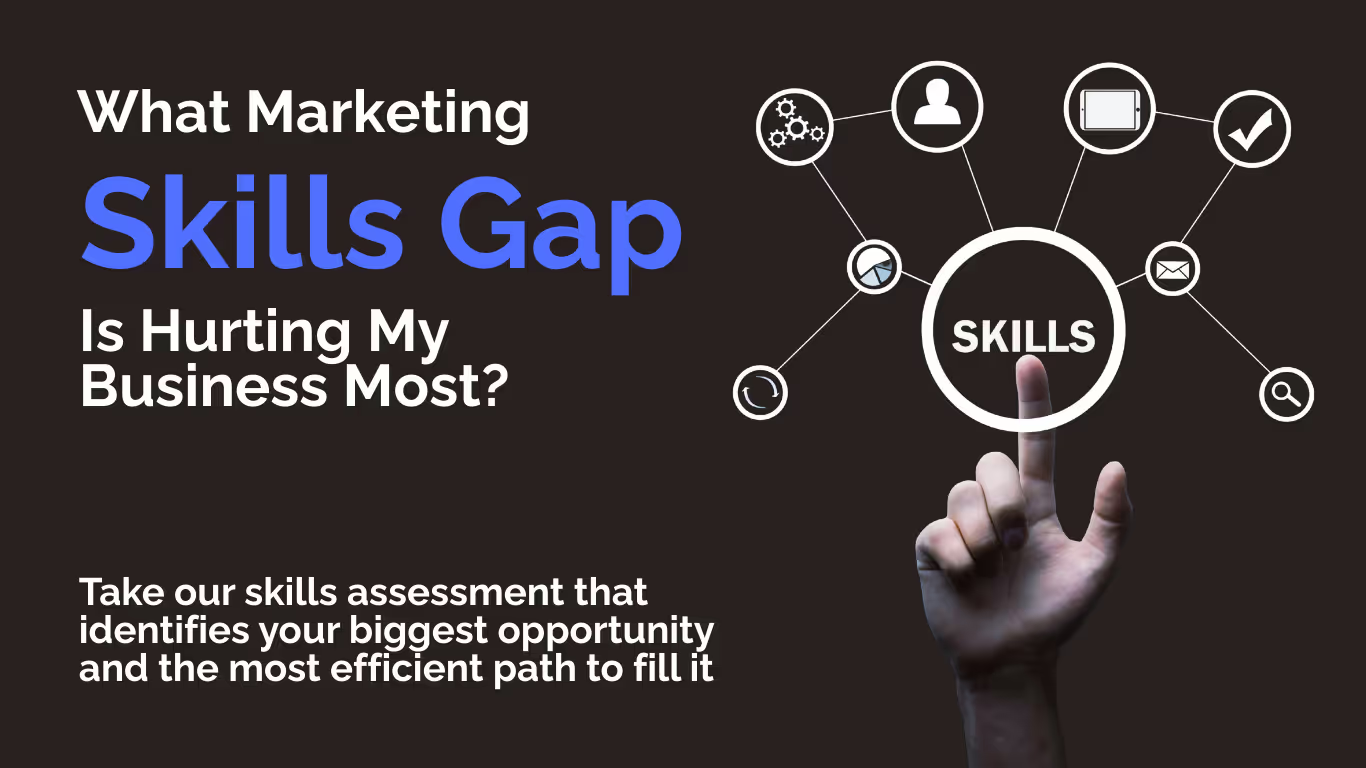
Let's examine the marketing capability constraints that may be preventing your business from achieving its growth potential. While it's tempting to focus on tactics and tools, the most significant barrier to marketing success is often a fundamental skills gap that affects strategic decision-making, execution quality, and optimization effectiveness across all marketing activities.
According to Harvard Business Review research, businesses that make strategic build-versus-buy decisions for marketing capabilities achieve 43% better growth rates than those making ad-hoc capability decisions. According to McKinsey research, the decision should be based on strategic importance, required expertise level, and long-term business objectives rather than short-term cost considerations.
According to learning curve research, marketing skills development follows predictable patterns where beginners achieve 20-40% of expert performance during their first 6 months, reaching 70-80% effectiveness after 12-18 months of focused practice. According to opportunity cost research, this learning period represents significant business impact beyond direct training costs.
According to strategic decision research, optimal marketing capability decisions depend on business stage, growth objectives, team capacity, and competitive requirements. According to skill development research, timing and context significantly impact the effectiveness of education versus outsourcing choices.
According to adult learning research, effective marketing education requires systematic skill development that aligns with business needs and provides practical application opportunities. According to professional development research, strategic education approaches achieve better results than random course consumption or general marketing education.
Marketing capability gaps don't just limit current performance; they constrain future growth opportunities and competitive positioning. Understanding which capabilities matter most for your business enables strategic resource allocation between internal development and external partnerships.
This weekend, audit your current marketing capabilities honestly. Which skills do you have, which do you need, and what's the most efficient path to bridging critical gaps? Consider both immediate business needs and long-term strategic objectives.
The businesses that achieve sustainable marketing success don't necessarily develop all marketing capabilities internally; they make strategic decisions about which capabilities to build, which to outsource, and how to structure learning and development for maximum business impact.
Marketing capability development is an investment in business growth potential. When approached strategically, capability building enables more effective tactical execution, better strategic decision-making, and reduced dependence on external providers for critical business functions.
Develop Strategic Marketing Capabilities with:
At Next Drop Design, we help businesses bridge marketing capability gaps through strategic services and guidance. Here's how we can support you:
With our expertise, you'll develop the marketing capabilities that matter most for your business while maintaining excellent execution and results.
Ready to stop letting marketing capability gaps constrain your business growth? We provide strategic capability assessment and development that builds your marketing strengths while ensuring consistent performance and results.